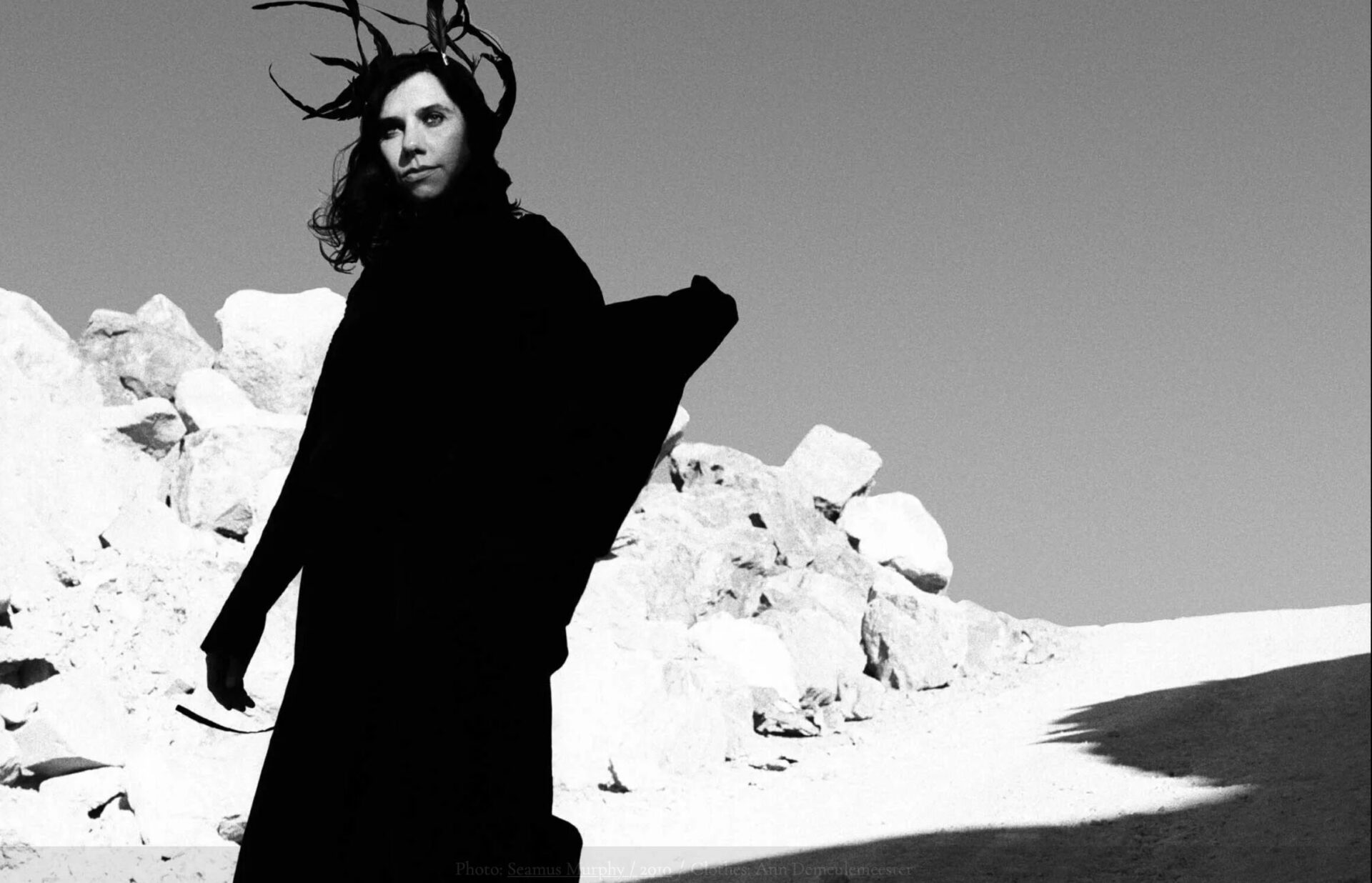A while ago John and Luke tried to start an occasional series for the Low Culture Podcast in which they were to go hammer and tongs arguing about which was the superior of two cultural artefacts. However – and this is perhaps why tQ has lasted for seventeen years – they manage to disagree. This was the case when tQ’s copilots sat down to listen to PJ Harvey’s White Chalk and Let England Shake, two magnificent albums that can’t really be put in opposition but are in fact a perfect pair. In the two records, PJ Harvey wrote some of the finest music of her career as she that explored ideas of inheritance and the complexities of both loving and despairing at the nation you come from.
We kick off with John bringing up his theory that White Chalk is like literary fiction, whereas Let England Shake resembles literary non-fiction. They’re both albums on which PJ Harvey focuses a new instrument – the piano in the case of the former, the autoharp for the latter – in order to challenge herself. John remembers how at the time the online music community got properly stuck in to try and understand what Let England Shake was about, and how the album marked a shift to lyricism being taken more seriously by music critics as we go into the literary influences on PJ Harvey’s writing process. For instance, like TS Eliot in The Wasteland, PJ Harvey adopts different voices, and different ways of singing, to create the rich mosaic of an album full of references to other artists, such as Francisco de Goya and the war photographer Seamus Murphy. If White Chalk was an album haunted by ancestral legacy among the Dorset hills, then Let England Shake is a reckoning with the troubled histories that power weaves over our landscape.
Oh yes, and there’s the time when we were listening to ‘The Glorious Land’ and got so confused by the weird hunting horn sound that John called up the PR and asked why there was such a weird anti-piracy noise on there.
Thanks to Alannah Chance for putting this together and to all our subscribers for funding our podcasts and wider editorial. We are 90% funded by subscribers and there’s always room in our blasted vista for more – if you’re not yet a subscriber you can sign up via the link on the paywall below. Subscribers can now listen to this podcast on the site past the paywall, as well as through their podcast feeds.



